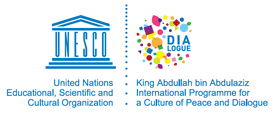Duration: 2 Hours
KEY TOPICS
- Functions of media and other information providers such as libraries, archives and the Internet
- What citizens should expect from media and other information providers such as libraries, archives and the Internet
- MIL and its Importance to democracy and good governance
- Freedom of expression, editorial independence of media, plurality and diversity in media and other information providers
LEARNING OBJECTIVES
After completing this unit, teachers will be able to:
- understand and describe the functions of media and other information providers as these relate to access to information and knowledge, self expression, and participation in democratic processes, and
- identify the conditions needed for media and other information providers to perform those functions
PEDAGOGICAL APPROACHES and ACTIVITIES
Journalism and media sources are important in every society. Without journalists and the news media, there would be no ‘window on the world’— we would have little way of knowing what was happening in our communities or in the world beyond our immediate experience. There are several key factors that journalistic practices should respect, and that citizens have come to expect of journalism:
- Organizing knowledge – making chaotic information organized and comprehensible, and going behind official positions to uncover special interests
Truthfulness – in the media, sources of information should be clearly stated so that citizens can judge relevance, reliability and potential biases; important unanswered questions should be noted with an expectation of a follow up if controversy exists - Public interest – in the work they do, journalists can do much to further the public interest by equipping citizens with the information they need to take part in public affairs
- Independence – it should be clear that the citizen debate should take place over and above personal biases; commentators must examine ‘both sides of the coin’ (i.e. discuss ideas they both agree and disagree with); and journalists must show independent thinking in their work
- Forum for public criticism and problem solving – the media should offer several channels for public interaction (letters, e-mail, phone contact or public forum); citizens also expect that the media give them access to space or airtime to allow conversations in their own ‘language’ with fellow citizens; further, they expect that a broad representation of views and values is visible in news coverage
- Accountability – the media should monitor all those who exercise power, not only governments, but also important public and private bodies; by holding the powerful to account, the media can inform community thinking
- Proportional and relevant news – citizens have a need for timely knowledge of important issues and trends; reports should not overstate or understate the true nature of threats and risks
- Balancing privacy and the right to know – citizens expect media professionals to balance the public right to know with the personal right to privacy (cf. Fackson Banda, UNESCO, 2009)

